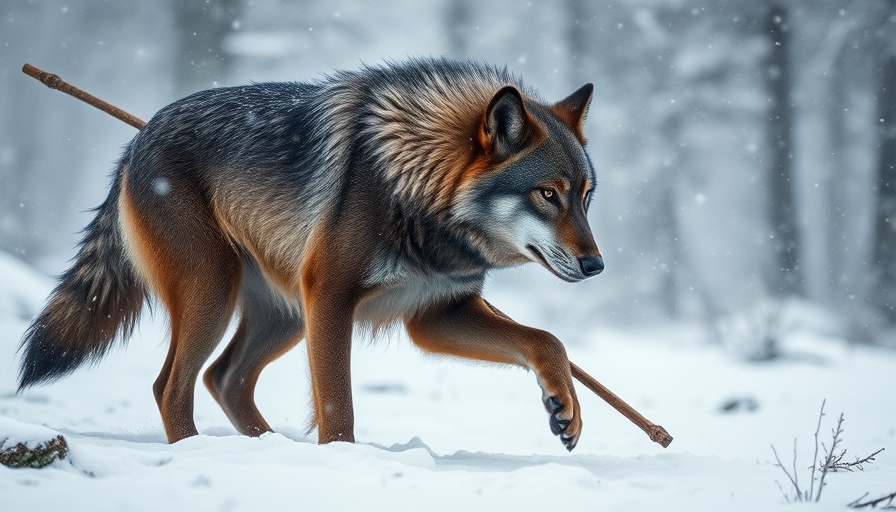
Colossal Biosciences: Reimagining Extinction and Startup Value
Colossal Biosciences recently unveiled its most ambitious project yet—an engineered dire wolf, rumored to evoke fascination as the symbol of de-extinction. With a valuation exceeding $10 billion, the company's bold venture raises questions about the essence of revival versus innovation within the startup ecosystem. But is this endeavor enough to validate its ambitious valuation?
The Science Behind the Dire Wolf Creation
For those unfamiliar, dire wolves were once prominent predators in North America, known from fossil studies to have roamed the earth over 12,000 years ago. Colossal's breakthrough involves utilizing advanced gene-editing techniques, notably CRISPR, to recreate these beasts by modifying gray wolf cells using ancient genetic data extracted from fossils. The result? Remus, Romulus, and Khaleesi, a trio reminiscent of their ancient ancestors but genetically tailored to modern ecosystems.
Bringing the Past to Life or Creating Hybrids?
Critics, including experts from various fields, argue that despite the awe-inspiring achievements in genome editing, these are not true restorations of an extinct species. David Gold, a professor of Paleobiology at UC Davis, voiced concerns that modifying a gray wolf into a dire wolf hybrid does not constitute "de-extinction." Instead, it represents an innovative blend of genetic engineering that pushes the boundaries of what is scientifically plausible but also raises ethical and ecological dilemmas.
The Entrepreneurial Implications of De-Extinction
Colossal Biosciences operates in a field that is increasingly attractive to tech enthusiasts and investors eager for breakthrough startup ideas. As startups grappled during the pandemic, investors are keen to reserve funds for ventures that promise innovative solutions. Consequently, the dire wolf project epitomizes a dual trend—income generation through unprecedented biotechnical revolutions while navigating the volatile terrain of public skepticism and expert critique.
Startup Strategies and the Science of Investment
Potential entrepreneurs, heed the lessons from Colossal’s ambitions—creating a startup can be as much about technical know-how as it is about market perception. Conducting feasibility assessments, understanding business startup costs, and leveraging technology such as artificial intelligence and data analytics may seem daunting, but they are vital in the high-stakes business environment. Knowing how to begin a business with innovative applications is crucial, as is understanding the available business startup funding options.
The Future and Possibilities of Startup Ventures in Biotechnology
Looking ahead, what does the future hold for biotechnological startups? As observed, the appetite for innovation remains strong, yet the ground for skepticism also flourishes. With advancements in fields like biotechnology, new business startup courses are necessary to equip budding entrepreneurs with relevant knowledge. Furthermore, tapping into government grants for business startups or finding suitable business startup incubators could act as pillars on which to build successful ventures.
Conclusion: Is Innovation Justified by Valuation?
As Colossal Biosciences continues to showcase its groundbreaking projects, it reveals the underlying challenges that innovative startups must confront: balancing scientific ambition with realistic societal applications. Their narrative acts as a beacon for aspiring entrepreneurs, illustrating that a startup’s worth is not merely defined by its financial valuation but also by its societal and ethical implications. For those in pursuit of groundbreaking innovations, understanding lessons from successes—and failures—will shape the future of startup culture.
 Add Row
Add Row  Add
Add 



Write A Comment